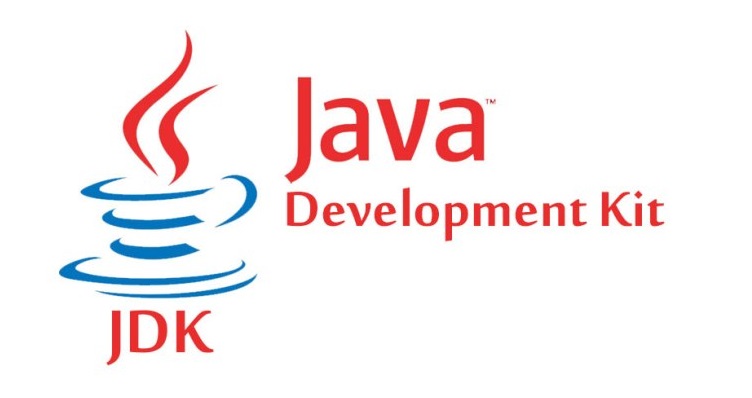In the ever-evolving world of technology, Java has emerged as one of the most popular and widely used programming languages. With its versatility and extensive functionality, Java has found its place in a wide range of applications, from web development to mobile app development and beyond. At the core of Java lies the Java Development Kit (JDK), a powerful toolkit that enables developers to create robust and efficient Java applications. In this article, we will delve into the intricacies of the Java Development Kit, exploring its components, features, and the role it plays in the development process.
Understanding the Java Development Kit (JDK)
The Java Development Kit, often referred to as JDK, is a comprehensive software development environment specifically designed for Java programming. It provides developers with all the necessary tools, libraries, and resources required to write, compile, and debug Java code. The JDK serves as a platform for developing, testing, and deploying Java applications across various operating systems and computing environments.
Components of the Java Development Kit (JDK)
The JDK comprises several essential components that contribute to its functionality and versatility. Let's take a closer look at these components:
1. Java Compiler (javac): The Java compiler is a fundamental component of the JDK. It translates the human-readable Java source code into a machine-readable format known as bytecode. This bytecode can then be executed on any platform that has a Java Virtual Machine (JVM) installed.
2. Java Virtual Machine (JVM): The JVM is an integral part of the JDK that executes Java bytecode. It acts as a virtual computer, providing a runtime environment for Java applications. The JVM interprets the bytecode and translates it into machine code that can be executed by the underlying operating system.
3. Java Runtime Environment (JRE): The JRE is a subset of the JDK that includes the JVM and other necessary libraries and files required to run Java applications. While the JDK is primarily used for development purposes, the JRE is used for executing Java programs on end-user machines.
4. Java Development Tools: The JDK offers a wide range of development tools that streamline the software development process. These tools include the Java debugger (jdb), the Java Archive (JAR) tool for packaging Java applications, the Java documentation generator (javadoc), and many more.
5. Java Class Library: The JDK provides an extensive class library that encompasses pre-written code modules and APIs (Application Programming Interfaces). The Java Class Library simplifies the development process by offering ready-made components for various tasks, such as handling input and output, networking, database connectivity, and graphical user interface (GUI) creation.
Benefits of Using the Java Development Kit (JDK)
By harnessing the power of the Java Development Kit, developers can unlock numerous benefits and capabilities. Let's explore some of the key advantages of utilizing the JDK in Java development:
1. Platform Independence: Java is renowned for its "write once, run anywhere" mantra, and the JDK plays a pivotal role in achieving platform independence. With the help of the JVM, Java applications can run seamlessly on diverse operating systems, including Windows, macOS, Linux, and more.
2. Robustness and Security: Java is designed with a strong emphasis on reliability and security. The JDK incorporates various mechanisms, such as exception handling and memory management, to ensure robustness and prevent common programming errors. Furthermore, Java's sandbox security model adds an extra layer of protection against malicious activities.
3. Vast Ecosystem: Java has a vast and thriving ecosystem, thanks in large part to the extensive libraries, frameworks, and tools provided by the JDK. Developers can leverage this ecosystem to expedite development, access ready-made solutions, and tap into the collective knowledge and expertise of the Java community. Whether it's utilizing popular frameworks like Spring or libraries like Apache Commons, the JDK empowers developers with a wealth of resources to enhance their productivity.
4. Scalability and Performance: The Java Development Kit is engineered to deliver scalability and high-performance capabilities. Java's inherent scalability allows developers to build applications that can handle increased workloads and accommodate future growth. Additionally, the JVM's efficient memory management and just-in-time (JIT) compilation contribute to Java's ability to deliver robust performance, making it suitable for enterprise-level applications.
5. Cross-Platform Compatibility: With the JDK, developers can develop applications that seamlessly run on various platforms, making it an ideal choice for organizations that operate in heterogeneous computing environments. Java's compatibility across different operating systems ensures that applications can be deployed without the need for major modifications or rewrites.
Staying Ahead with Java Development Kit (JDK)
In today's fast-paced digital landscape, staying ahead of the competition is crucial. With the Java Development Kit (JDK), developers have a powerful ally that enables them to build cutting-edge, feature-rich applications. The JDK's comprehensive set of tools, libraries, and resources empowers developers to harness the true potential of Java and deliver high-quality solutions.
From startups to large enterprises, organizations across the globe rely on the JDK to build robust web applications, scalable enterprise systems, mobile apps, and much more. Java's versatility and the extensive capabilities of the JDK make it a preferred choice for developers seeking reliability, security, and platform independence.
By leveraging the JDK's components, such as the Java compiler, JVM, and Java Class Library, developers can streamline their development process, improve code quality, and enhance productivity. The JDK's vast ecosystem, including popular frameworks and libraries, further accelerates development and fosters innovation.
Java, backed by the Java Development Kit, has stood the test of time and continues to evolve, adapt, and thrive in an ever-changing technological landscape. Its strong community, regular updates, and dedication to backward compatibility ensure that developers can rely on Java for their long-term projects.
In conclusion, the Java Development Kit (JDK) is a vital toolkit for Java developers, offering a wealth of resources, tools, and libraries to create powerful and efficient applications. By harnessing the capabilities of the JDK, developers can unlock the true potential of Java, enabling them to stay ahead in today's competitive software development landscape.




0 comments:
Post a Comment